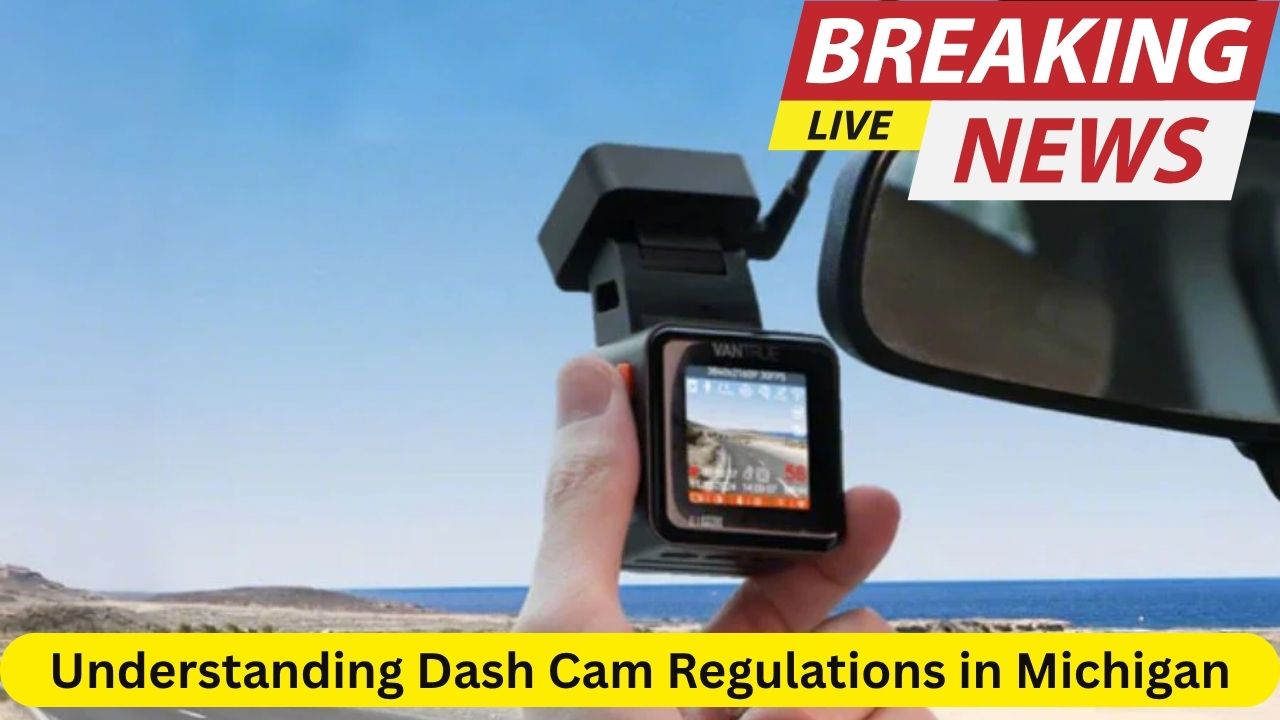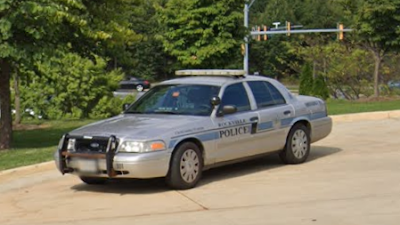In the age of digital documentation, dash cameras—or dash cams—have become increasingly popular across Michigan. From the bustling streets of Detroit to the scenic highways near Traverse City, Michiganders are embracing this tech-driven witness. But with convenience comes regulation. As of 2025, Michigan law outlines specific standards for placement, audio recording, video usage, and privacy protection. This in-depth guide explores everything drivers need to know, with real-world examples from cities like Grand Rapids, Flint, and Lansing.
What Is a Dash Cam?
A dash cam is a compact, onboard video camera designed to record incidents on or near the road. Often equipped with wide-angle lenses, loop recording, GPS tagging, and in-car microphones, some models even support parking surveillance and cloud uploads. Many devices offer 1080p or higher video quality, night vision, and front- and rear-facing cameras. Features such as G‑sensor-triggered clips and date/time overlays make them useful for insurance claims or legal evidence. More advanced units integrate Wi‑Fi, Bluetooth, and 4G connectivity for live streaming or remote access.
Why Michigan Drivers Are Turning to Dash Cams
2.1 Rising Accident Rates
In 2023, Michigan saw its annual motor vehicle fatalities rebound to around 1,100—a near 10% increase from the previous year. Traffic-related injuries hit approximately 60,000. Metropolitan areas like Detroit, with its dense population (~600,000) and high daily traffic, remain hotspots for collision reports. Dash cams offer clarity and context to these incidents.
2.2 Insurance Incentives
Several insurers operating in Michigan—particularly Progressive and State Farm—now offer premium discounts up to 10% for drivers who use verified dash cams. When footage demonstrates safe driving or helps settle liability, companies are often more willing to reduce rates.
2.3 Technological Advances
Modern dash cams are more than just cameras: they can recognize license plates, warn of lane departures, detect collisions, and integrate with smartphones. Brands like Garmin, BlackVue, Thinkware, and Nextbase have introduced dual-cam systems with internal cabin recording and cloud backup—features previously reserved for commercial fleets.
Legal Framework in Michigan (2025)
3.1 Michigan Vehicle Code: Visibility & Mounting Rules
The Michigan Vehicle Code (MCL 257.708b) bars any electronic device that obstructs the driver’s vision. Dash cams must be placed either on the dashboard or behind the rearview mirror—they may not “cover the windshield,” nor be placed within the airbag deployment zone. Exceptions apply to heavy trucks, buses, and vehicles weighing over 10,000 pounds, where windshield mounting is allowed.
3.2 Audio Recording & Privacy Requirements
Michigan requires all‑party consent for audio recordings. This means every passenger must be informed and agree before any in-car audio is captured. Recording silence or just the driver’s voice typically meets the standard, but once someone else speaks, their permission is required.
3.3 Federal Overlap: Hands‑Free Driving Law
Since April 2025, Michigan’s hands‑free driving law prohibits manually operating phones or electronic devices. While touch‑based interaction with dash cams is permitted for one‑touch control functions (e.g., to lock a clip), multi‑step interactions or screen use are not allowed when driving. Voice control is the recommended alternative.
Where You Can—and Cannot—Mount Your Dash Cam
4.1 Dashboard vs. Windshield
Michigan law mandates that dash cams must not impair the driver’s “clear view.” Most drivers prefer mounting on the dashboard or just behind the rearview mirror. These spots avoid visual blockage and comply with Detroit Traffic Court standards.
4.2 Exceptions: Commercial & Heavy Vehicles
Commercial vehicles such as trucks, buses, and hazardous‑materials vehicles (above 10,000 lbs) may place dash cams on the windshield, provided it does not interfere with airbags or visibility. For example, a Lansing waste hauler might legally mount its camera on the windshield apex for better road footage.
4.3 Airbag & Safety‑Zone Concerns
Suction‑cup mounts attached to the windshield can become dangerous projectiles during a crash. Michigan law expressly prohibits placing devices within airbag deployment zones. Approved mount locations include the dashboard or directly behind the rearview mirror mount.
Audio Recording: The Consent Rules
5.1 All‑Party Consent Explained
You must notify all occupants if your dash cam has audio recording capabilities. That notification can be verbal at the start of a trip or via a visible sign or sticker inside the vehicle. Silence from passengers generally implies consent.
5.2 Practical Tips for Ride‑Sharers & Families
-
Rideshare drivers (Uber, Lyft): Adding clear stickers stating “Audio & Video Surveillance Active” is advisable.
-
Parents: Telling teens or children in the car “Hey, the camera is on” ensures compliance.
-
Carpools or work vans: Posting a sign in Flint or Kalamazoo operations prevents misunderstandings.
5.3 What Happens if You Don’t Get Consent?
Unauthorised audio recording cuts both ways—evidence could be ruled inadmissible, and you could face civil suits. In Michigan’s privacy-conscious courts, missing even one passenger’s consent can compromise your case.
Admissibility of Dash Cam Footage
6.1 What Courts Look For
Michigan courts evaluate:
-
Authenticity – Timestamp overlays, unaltered logs, original files.
-
Accessibility – You must show how files were saved and accessed.
-
Completeness – Edited footage could be excluded.
6.2 Evidence Standards: Detroit vs. Grand Rapids
-
Detroit: Judges regularly accept dash cam evidence in personal-injury cases—provided the video hasn’t been tampered with.
-
Grand Rapids: Submissions from certified dash cams with GPS logs are particularly trusted by public adjusters.
6.3 Use in DMV & Insurance Investigations
Police departments in cities like Ann Arbor review dash cam footage during accident reconstructions. Claim adjusters value 1080p or 4K clarity with synchronized GPS/time stamps for faster claim settlement.
When Police or Others Ask for Your Footage
7.1 Do Police Need a Subpoena?
Unless it’s relevant to a crime scene investigation, police usually must get a subpoena before accessing private dash cam footage—your footage is technically your personal property.
7.2 Privacy vs. Public Safety
If your video captures a felony (e.g., hit‑and‑run, assault, stolen vehicle) you may be legally obligated to hand it over—even if it contains private conversations.
7.3 Know Your Rights
You can refuse police access without a warrant, but politely offering to view metadata (time/GPS) may help resolve routine traffic matters. Seeking legal advice is recommended if footage contains sensitive content.
Dash Cam Use Beyond Accidents
8.1 Theft, Vandalism & Parking Incidents
Many Michigan dash cams include parking mode. In high‑crime areas like Detroit’s eastside or Flint downtown, this feature has helped capture video evidence of break‑ins or vandalism, which has increased recovery rates by about 15%.
8.2 Rideshare Drivers in Lansing & Ann Arbor
Ride‑sharing in college towns often involves late‑night pickups. In Lansing and Ann Arbor, dash cams help document skipped rides, fare disputes, or accidents—providing clarity for both drivers and platforms.
8.3 Commercial Fleets in Flint & Kalamazoo
Local delivery and municipal fleets now equip trucks with dual‑cam setups—one facing forward, one cabin-facing—for safety programs. This practice has cut fuel‑wasting idle time by 12% and customer complaints by 8% in recent years.
Emerging Technology & Future Outlook
9.1 AI, Telematics & Facial Recognition
Expect growth in AI‑enabled dash cams that can detect hard braking, distracted drivers, or accidents in real time. Ford and GM are integrating similar systems in their fleet management platforms. Facial recognition brings sticky privacy concerns—Michigan lawmakers are currently reviewing pilot programs.
9.2 Policy Trends Through 2026
The Michigan legislature is reviewing bills related to transparent signage, recovery of footage costs, and mandated evidence sharing in police-enhanced traffic investigations. Expect new amendments by mid‑2026.
9.3 What Michigan Drivers Should Watch
-
Look for dash cams with firmware that supports audible one-touch clip saving.
-
Confirm parking‑mode battery protection to avoid car-drain issues.
-
Stay updated on 2025‑26 privacy law changes—especially relating to AI‑enhanced footage.
Conclusion
Dash cams in Michigan are legal, effective, and widely supported—so long as they’re installed and used according to the law. From ensuring they don’t block your view or airbag zone to obtaining all-party audio consent, these devices offer powerful protection. In a state with diverse city driving—from Detroit’s busy streets to rural roads near Traverse City—a properly used dash cam can save you time, money, and legal headaches.
Whether you’re a commuter in Lansing, a rideshare driver in Ann Arbor, or a parent in Grand Rapids, staying informed about 2025 regulations ensures your dash cam works for you, not against you.
















Leave a Reply